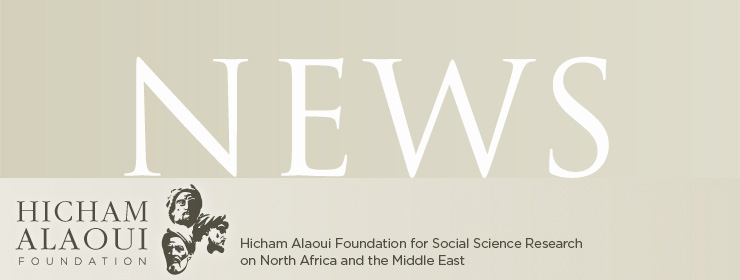At CDDRL, he has been deeply involved in the Arab Reform and Democracy Program doing research, mentoring students, giving talks and developing the program.
“My goal is to enrich myself and my community as well as foster general understanding of the region,” he said.
Although Ben Abdallah originally intended to stay at CDDRL for two years, he eventually decided to remain longer and is now a consulting professor. This means he regularly commutes back to Princeton, where his wife, Malika, and their two daughters live.
One of Ben Abdallah’s initial research projects at CDDRL was investigating the idea that the Arab world is incompatible with democracy, which he swiftly rejected as a false concept.
“There was an underlying thesis that there was something about Arabs that makes them accept authoritarianism, and I wanted to unbundle it,” he said. “I wanted to say, look, authoritarianism is here, but this is why it’s here. The factors are not cultural.”
The Arab Spring may have surprised the Western world, but not Ben Abdallah.
“I always felt that something was around the corner,” he said. “I knew that the status quo was untenable, and that in a few of these places something would have to give way.”
What surprised him was the movement’s place of origin, Tunisia, which had a strong security apparatus. He also did not envision the movement’s diffusion and transformation into what he called an “awakening.”
Despite the optimism in the movement, he said that the future of the region is uncertain. Setbacks, reversals and failures are all likely to happen as each country faces its own particular demons, he said, but he believes the trend towards democracy is irreversible.
“This is a new generation with new values,” he said. “Fear has receded, and societies will not remain idle.”
He also downplayed fears over the rise of Islamist parties throughout the region and in his native Morocco, where the Justice and Development Party, a moderate Islamist party, recently won parliamentary elections.
“This does not mean we will see the rise of theocracies,” he said. “People are not going to resist secular authoritarianism to fall into religious despotism.”
Although Ben Abdallah has vigorously championed reform in Morocco for the last two decades, he attempts to keep his expectations realistic.
“It took hundreds of years for the West to get things on track,” he said. “It will be a messy and laborious process for Morocco, but we’ll eventually get it right.”
Ben Abdallah’s work at Stanford and in politics is not the end of his pursuits. He also runs his own foundation, the Moulay Hicham Foundation for Social Science Research on North Africa and the Middle East, founded Princeton’s Institute for the Transregional Study of the Contemporary Middle East, North Africa and Central Asia and owns Al-Tayyar Energy, a renewable energy company that processes agricultural waste in Thailand.
“I barely have free time; I am juggling,” he said. “Every time I think I cannot handle more, someone else throws me another ball to juggle.”
Although his professional and family lives are rooted in the United States now, Ben Abdallah still keeps close ties with Morocco and returns often.
“I miss the community feel,” he said. “I miss my nephews and my friends. I miss walking on the streets hearing the call to prayer and smelling the odors of spices, so now and then I need to go back home.”
Source: Stanford Daily









